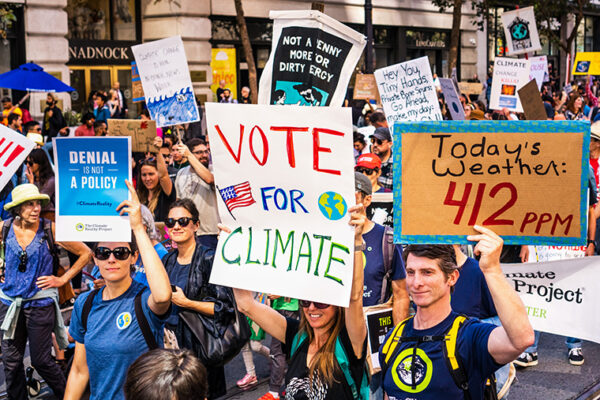As an economist, academician and researcher steeped in such data and assessments, one Washington University in St. Louis expert wants to press the pause button on the worst-case-scenario numbers related to the National Climate Assessment released the day after Thanksgiving — by 2090, the report estimated potential losses such as $155 billion yearly in lost wages, $118 billion yearly in coastal property damages, and so on.

“Forecasting long-term trends in climate is a difficult exercise, but at least there are some data underlying the forecast,” said Glenn MacDonald, the John M. Olin Distinguished Professor and director of the Center for Research in Economics and Strategy at Olin Business School.
Pause.
“But predicting how countries, businesses, consumers and technology will adapt to climate change over an extended period, and how such adaptations will impact climate change itself, is a much greater challenge since our experience is so limited.
“For this reason, this economic forecast should be thought as one example of what might happen.”
Perhaps calculating risk impacts and probabilities might provide a more balanced forecast, he added.
“It is likely more useful to approach the future of the economy and climate from the perspective of risk management,” MacDonald said. “That is, it’s not that we know where the climate and economy are headed and want to cause it to take a different path; it’s more that we are confident we really don’t know where they are going — especially how climate change will affect the economy and how the feedback from the economy to the climate will work — and should attempt to be prepared to take advantage of any good outcomes and ameliorate any bad ones.”



